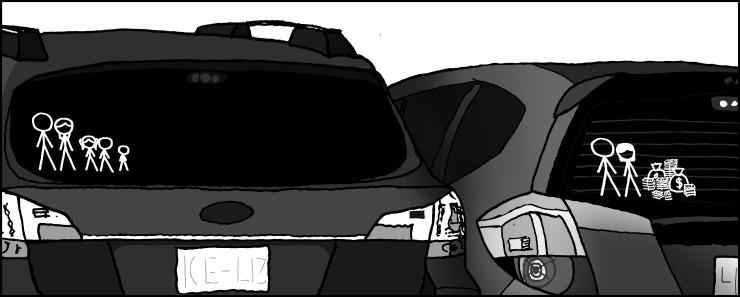I thought from the moment that Rick Perry mused that Texas might secede from the Union (again) that he was going to be the Republican nominee for president in 2012. I still think so.
George W. Bush was a good-old-boy in the making from a small town in Texas. Then they sent him off, against his will, to the fancy prep school and university that his northeastern blue-blood family traditionally attended. He didn't like either one, spending his real energy on social life and cheerleading. He even got a further degree from another fancy northeastern school. He was a military pilot, but mostly to avoid the war. But as I read his history, George W. Bush never really came into his own until he got to be head cheerleader again for a sports team. That job used his best, Texas-honed sales skills. His Texas Methodist wife finally helped him straighten out, dry up, find Jesus, and become a stand-up guy. He was always a political amateur, but he caught the eye of a political professional, Karl Rove, who recruited the money and borrowed other professional politicians from Bush, Sr.'s shop.
Rick Perry was a good-old-boy in the making from a small town in Texas. Except his Texas roots went back generations, proletarian and petite bourgeois all the way. He went to the local high school, was an Eagle Scout, married a Texas Methodist who was his elementary school sweetheart. He then went to an iconic Texas school, where he majored in social life and cheerleading. He became a military pilot, but for real. His real education, as he tells it, came from his boss when Perry was a door-to-door salesman. Perry was a serious and competent Democratic politician, supporting Al Gore for president and backing Bill Clinton's health care plan. Perry switched parties when the opportunities were better, and drew the attention of Karl Rove. When Perry and Rove fell out, Rove picked up George W. Bush.
George W. Bush represented what the activated part of the Republican Party wanted, but in him it was an overlay that went against most of his training. Rick Perry, on the other hand, really is a white Christian businessman who supports government spending for people and interests like his, but is suspicious of government spending for others. And he is a competent politician who can learn enough about government to make just-in-time executive decisions.
I think Gov. Perry will give the Republican base a chance to try to replay the Bush administration, only this time make it come out better.
